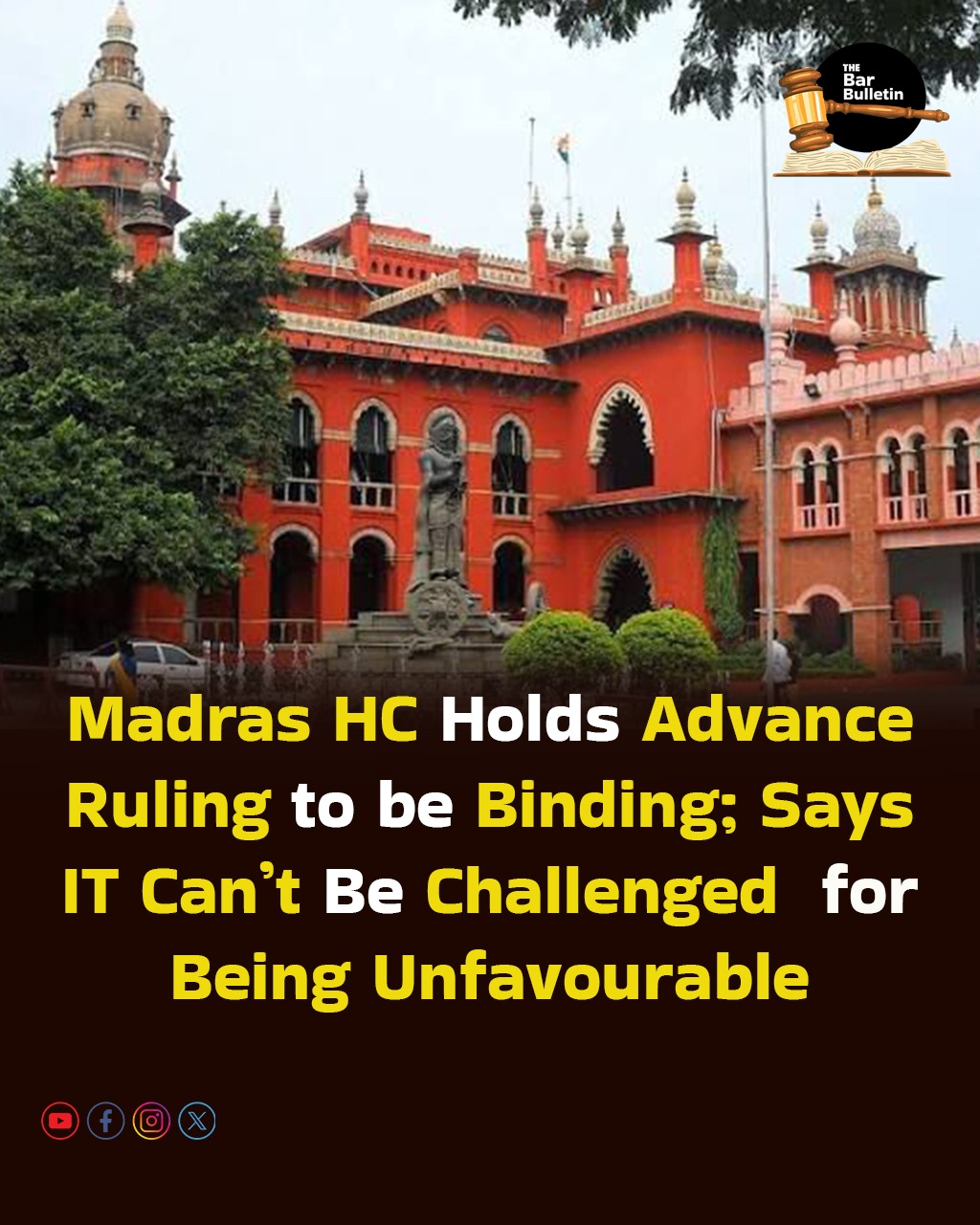The Madras High Court clarified that the scope of appeal under Section 28KA of the Customs Act, 1962, is limited, as the advance ruling obtained is binding on the applicant who has sought the same under Section 28J of the Customs Act, 1962. Unless the ruling of the Advance Ruling Authority is palpably arbitrary or irrational or without any proper reasoning, it cannot be interfered with by the Writ Courts under Section 28KA.
Reference was made to sub-section (2) of Section 28J of the Customs Act, which prescribes that the Advance Ruling obtained under Section 28J(1) has to remain in force for a period of three years, and only if there is a change in law or facts based on which the Advance Ruling was given, then such Advance Ruling will cease to be in force before expiry of aforesaid period of three years.
The Division Bench comprising Justice S.M. Subramaniam and Justice C. Saravanan observed that the applicant-taxpayer, having invited a ruling, cannot challenge the Ruling under Section 28KA merely because the Ruling has been given against him. The Bench also explained that the purpose of incorporating such a provision into the Customs Act in the year 1999 was only to give certainty in the matter specified in Section 28H(2) for the purpose specified in Section 28J(2), intending to provide clarity, certainty, and transparency to importers, exporters, and other stock dealers as a measure of trade facilitation and to reduce the scope for litigation.
The Bench emphasized that judicial review is concerned not with the decision but with the decision-making process. Hence, the applicant who had voluntarily invited the advance ruling was bound by it unless it is shown that the procedure followed by the advance ruling authority was not in accordance with law and is basically opposed to law or against principles of natural justice.
The Bench added that in matters of classification, the jurisdiction of the High Court stands eclipsed in terms of Section 130E(b) of the Customs Act, and the appellant cannot expect the Advance Ruling Authority to accept its contention merely because an application has been made for such an Advance Ruling. Since the CAAR Mumbai had discussed the issues threadbare and the impugned order did not suffer from any procedural irregularity, the Bench refused to interfere and dismissed the appeal in favour of the Respondent-CAAR.
Briefly, the petitioner, a Chennai-based automobile component manufacturer, filed an application before the Customs Authority for Advance Ruling (CAAR) Mumbai on the classification of “Assy Guide Rails” imported by the appellant. The appellant sought an advance ruling on whether these Assy Guide Rails were classifiable under Customs Tariff Heading 8708 9900 as “parts of motor vehicles” or under Customs Tariff Heading 7610 9020 as “parts of structures, not specified elsewhere”.
The appellant submitted that the subject goods would be used in the manufacture of sunroof systems of automobiles. The Assy Guide Rails in a sunroof assembly are long, narrow tracks that provide support and guidance for the sunroof panel as it slides open and closed, helping to keep the sunroof panel in place and prevent rattling or vibrating during operation. The CAAR Mumbai, after considering the application, classified the Assy Guide Rails under Customs Tariff Heading 8708 2900 as “other parts and accessories of bodies of motor vehicles” instead of the classifications sought by the appellant.
Appearances:
Advocate S. Ganesh Aravindh, for the Appellant/ Taxpayer
Advocate Rajendran Raghavan, for the Respondent/ Revenue



